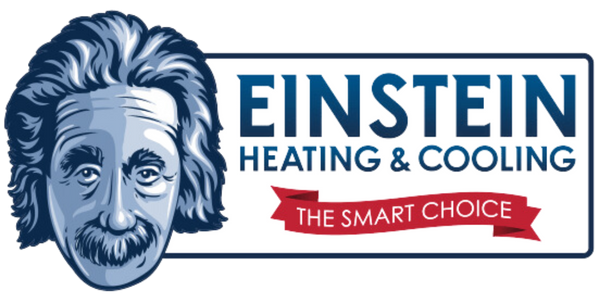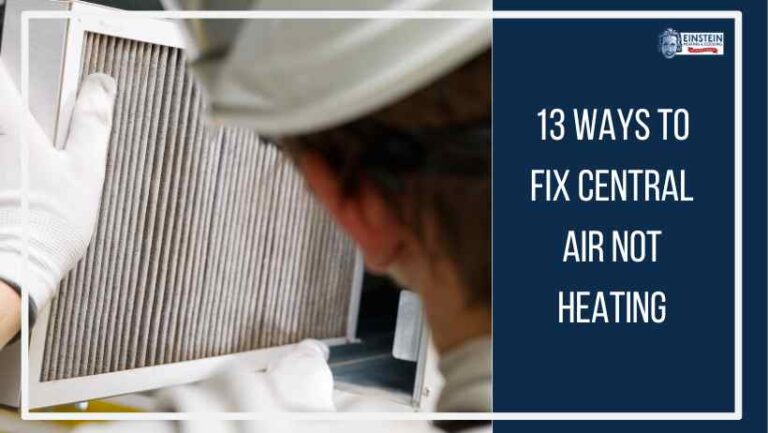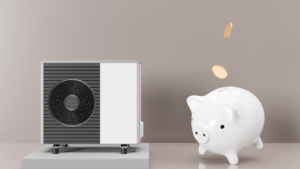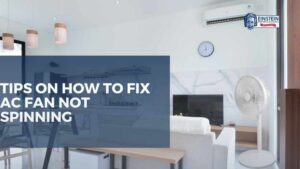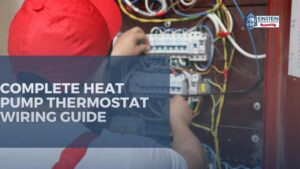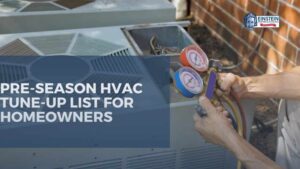Central air conditioning systems are vital for maintaining indoor comfort, and when your central air fails to provide sufficient heating, it can be both inconvenient and perplexing. If you’re searching for “why is my central air not heating”, then this guide is for you. In this comprehensive guide, we will delve into a list of 13 factors contributing to this problem and provide detailed solutions to assist you in troubleshooting and resolving the issue effectively.
1. Check Thermostat Issues
Incorrect Settings
The thermostat functions as the heart of your heating system, dictating when and how much warm air is distributed. An often overlooked reason for inadequate heating is incorrect thermostat settings. Ensure that your thermostat is appropriately configured for the heating mode and that the temperature is set to your desired level. It’s a simple but crucial step that can rectify heating issues.
Faulty Thermostat
A malfunctioning thermostat can undermine the entire heating process. If your thermostat is unresponsive or providing inaccurate readings, it may fail to send the necessary signals to your central air system. Start by replacing the thermostat batteries, and if the problem persists, consult with a professional for a thorough examination and potential repair or replacement.
2. Assess the Air Filter
Clogged Air Filter
A clogged air filter can significantly impede the airflow within your central air system, resulting in reduced heating efficiency. It’s essential to adopt a regular schedule for changing the air filter to prevent blockages. A dirty filter forces the system to work harder, increasing energy consumption and diminishing the overall heating capacity.
Wrong Filter Size
The importance of using the correct filter size cannot be overstated. Using the wrong size can obstruct the airflow within the system. Refer to the manufacturer’s specifications to confirm that you are using the appropriate filter size for your central air system. This seemingly minor adjustment can contribute significantly to enhancing heating efficiency.
3. Clean and Inspect Ductwork
Leaks in Ducts
Leaky ducts can result in warm air escaping before it reaches its intended destination. This not only affects the efficiency of your central air system but also creates the illusion of inadequate heating. Conduct a thorough inspection of your ductwork for visible leaks and promptly seal them using suitable materials. For more extensive or hard-to-reach leaks, seeking the assistance of professionals for duct sealing is advisable.
Blocked or Restricted Ducts
Obstructions within the ductwork, such as furniture or accumulated debris, can restrict the free flow of air. This restriction diminishes the efficiency of your central air system. Ensure that all vents and registers are unblocked and open, allowing the warm air to circulate freely throughout your home.
4. Ensure Sufficient Insulation
Inadequate Home Insulation
Insufficient insulation can lead to heat loss, making it challenging for your central air system to maintain a consistent and comfortable temperature. Conduct a comprehensive examination of your home’s insulation, focusing on areas such as attics, walls, and floors. Supplementing insulation in these areas can help retain heat and alleviate the strain on your central air system.
Poor Window and Door Seals
Drafty windows and doors can undermine the efforts of your central air system by allowing cold air to enter and warm air to escape. This forces the system to work harder, affecting its overall efficiency. Routinely inspect and replace weatherstripping around windows and doors to fortify insulation and prevent heat loss.
5. Check Pilot Light or Ignition System
Pilot Light Out
For gas-powered central air systems, a functioning pilot light is imperative for initiating the heating process. If the pilot light is out, follow the manufacturer’s guidelines to relight it. If the issue persists, it may indicate an underlying problem, necessitating professional attention.
Faulty Ignition System
Modern central air systems often employ electronic ignition systems. A malfunctioning ignition system can disrupt the heating process. Engage a professional technician to conduct a thorough inspection and address any issues with the ignition system promptly. As a homeowner, you must know how to find the best HVAC technicians near you to ensure that your HVAC unit runs in optimum condition.
6. Do Proper Heat Exchanger Maintenance
Cracked Heat Exchanger
A cracked heat exchanger is a serious concern that can compromise both heating efficiency and safety. Signs of a cracked heat exchanger include unusual odors or soot buildup. If you notice any of these indicators, shut down the system immediately and seek professional inspection and necessary repairs.
Lack of Maintenance
Regular maintenance is paramount for keeping your central air system in peak condition. Neglecting tasks such as cleaning and inspecting the heat exchanger can result in decreased efficiency and potential heating issues. Schedule annual HVAC maintenance checks to address any issues proactively.
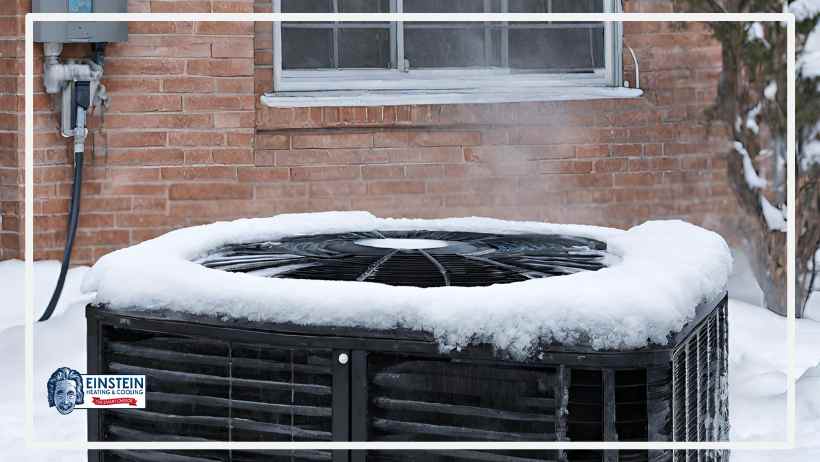
7. Inspect Electrical Wirings
Tripped Circuit Breaker
A tripped circuit breaker can interrupt the power supply to your central air system, leading to a lack of heating. Examine the circuit breaker panel and reset any tripped breakers. If the problem persists, there may be an underlying electrical issue requiring the expertise of a professional.
Faulty Wiring
Inspect the wiring connecting your central air system to the electrical supply. Damaged or faulty wiring can impede the flow of electricity, adversely affecting the heating function. Enlist the services of a licensed electrician to identify and repair any issues with the electrical wiring.
8. Ensure all Vents are Unblocked
Furniture or Obstructions
Blocked vents or registers, often due to furniture or other obstructions, can hinder the efficient distribution of heated air. Ensure all vents and registers are unblocked, allowing for the unrestricted flow of warm air throughout your home.
Closed Vents
Closed vents in unused rooms can disrupt the overall airflow balance, leading to temperature inconsistencies. Keeping all vents open helps maintain proper airflow, optimizing the distribution of heat throughout your home.
9. Place Thermostat Strategically
Improper Placement
The location of the thermostat plays a crucial role in obtaining accurate temperature readings. If the thermostat is situated near heat sources or drafts, it may provide inaccurate readings, resulting in inefficient heating. Consider relocating the thermostat to a more central and neutral position for improved accuracy.
Sun Exposure
Direct exposure to sunlight can also impact thermostat accuracy. If the thermostat is in a sunny location, it may sense higher temperatures than the actual room temperature. Install curtains or shades to minimize direct sunlight exposure and enhance the overall performance of the thermostat.
10. Assess System Size and Capacity
Undersized System
An undersized central air system may struggle to meet the heating demands of your home, particularly during colder weather. Consult HVAC professionals to assess whether your system is appropriately sized for your home and consider upgrading if necessary to ensure adequate heating.
Insufficient Heating Capacity
If your central air system is too small for the size of your home, it may lack the necessary heating capacity and you might need heating repair in Bend. This can result in inadequate heating during colder periods. Consult with HVAC experts to evaluate the system’s capacity and explore options for an upgrade if needed, ensuring your system meets the heating demands of your home.
11. Examine Damaged or Disconnected Ductwork
Physical Damage to the central air not heating up
Physical damage to ductwork, such as cracks or disconnections, can lead to heat loss. Inspect your ductwork for any visible signs of damage and promptly repair or replace damaged sections to restore heating efficiency.
Poorly Sealed Joints
Inadequate sealing at duct joints allows heated air to escape, diminishing the effectiveness of your central air system. Ensure that all duct joints are properly sealed with appropriate materials to prevent heat loss and optimize heating distribution.
12. Probe the System Pressure
Low Refrigerant Levels
Insufficient refrigerant levels can result in low system pressure, affecting the heating capacity of your central air system. Consult with HVAC professionals in Bend to check and replenish refrigerant levels to ensure optimal pressure for efficient heating.
High System Pressure
Conversely, high system pressure can also hinder heating performance. Excessive pressure may indicate a problem with the compressor or other components. Seek professional assistance to diagnose and address issues related to high system pressure.
13. Look into the Thermostatic Radiator Valve (TRV)
Stuck Valve
If your central air system incorporates thermostatic radiator valves, a stuck valve can disrupt the heating balance. Check each valve for smooth operation, and if one is stuck, consider lubricating or replacing it to restore proper heating.
Incorrect Valve Setting
Incorrectly set thermostatic radiator valves can lead to uneven heating. Ensure that each valve is set according to the specific heating needs of the corresponding room, optimizing the overall heating performance of your central air system.
Conclusion
Resolving issues with a central air not heating requires a thorough and systematic approach. By examining an extended list of factors, you can enhance the efficiency of your central air system, ensuring a warm and comfortable indoor environment. Regular maintenance and professional assistance from Einstein Heating and Cooling are critical for keeping your central air system in optimal condition and avoiding prolonged periods of discomfort.
